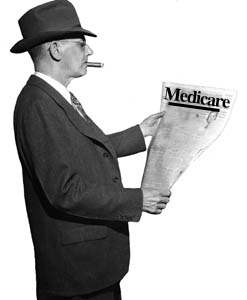Senior Living Blog

Missourians faced a health care gap, so they took matters into their own hands
Missourians faced a health care gap, so they took matters into their own hands Organizing for Medicaid expansion Missourians mobilized by the thousands to get Medicaid expansion on the ballot this year, a move that will impact 230,000 low-income residents in the “coverage gap.” For almost a decade, advocates in Missouri have been lobbying their […]
November 17, 2020

Medicare finalizing coverage policy for coronavirus vaccine
Medicare finalizing coverage policy for coronavirus vaccine A senior Trump administration official says Medicare will cover the yet-to-be approved coronavirus vaccine free for older people under a policy change expected to be announced soon Medicare will cover the yet-to-be approved coronavirus vaccine free for older people under a policy change expected to be announced shortly, […]
November 16, 2020

Trump administration set to announce Medicare and Medicaid will cover Covid vaccine
Trump administration set to announce Medicare and Medicaid will cover Covid vaccine The Trump administration is set to announce as early as this week that Medicare and Medicaid will cover out-of-pocket costs for a potential coronavirus vaccine that is granted emergency use authorization, according to a person familiar with the matter. Coming days before the […]
November 16, 2020

Inaccurate Census count could affect $1.5 trillion in federal funding
A census taker knocks on the door of a residence in August in Winter Park, Fla. Census workers visited households that hadn’t yet responded to the 2020 census. The consequences of an inaccurate census Highway construction. Food stamps. Rural education. Medicare. The federal government relies on data derived from the decennial census to distribute roughly […]
November 9, 2020

Frequently Asked Questions About Medicare
Almost every American over the age of 65 is covered by Medicare, or will be after they retire. However, there are a lot of aspects about this massive health insurance program that are not well understood by many people. With that in mind, here are a few things Americans often don’t know about Medicare and […]
December 27, 2017

What You Need To Know: MEDICARE vs. MEDICAID
Understanding Medicare vs. Medicaid for maximum benefits Medicare and Medicaid can be confusing, partly because the names sound so similar. But they’re two very different government healthcare programs. Medicare focuses on adults age 65 and older and Medicaid focuses on low-income individuals and families. The benefits, costs, and eligibility requirements are different for each program. […]
June 22, 2017

How Is The Trump Healthcare Plan Different From Obamacare?
President Trump’s plan to reform healthcare took a big step forward recently when the House of Representatives voted to repeal and replace Obamacare with an entirely new health insurance system. This new health insurance program — the American Health Care Act, or Trumpcare — is very different from the Affordable Care Act, or Obamacare.
May 9, 2017

Medicare vs Medicaid — What They’re All About
Though they sound similar, there is a huge difference between Medicare and Medicaid.
April 24, 2013
“Now that I Have Medicaid, What Should I Do?”
September 28, 2012

Medicare Supplement Insurance News
This Week in Medicare…
August 2, 2011
